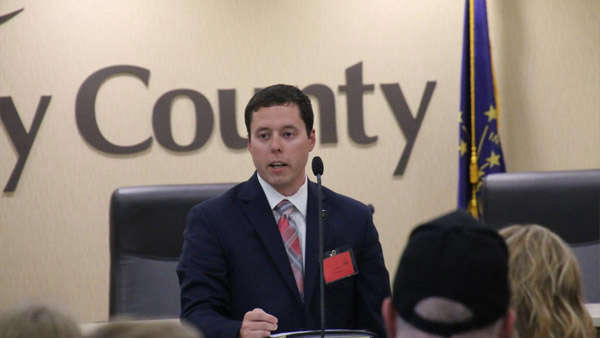New law to keep Hoosier farmland from being leased or owned by foreign adversaries

Indiana's prime farmland plays a tremendous role in our economy, and we know Hoosiers, along with the rest of the world, count on its production. However, alarm bells are sounding in our state and across the country as more and more of our foreign adversaries like China and Russia are buying up our precious and limited agricultural resources. During the 2024 legislative session, I supported efforts to stop these land grabs, and protect Indiana farm ground and our food supply chain.
The federal government identifies China, Russia, North Korea, Iran, Cuba and Venezuela as foreign adversaries as they "have engaged in a long-term pattern or serious instances of conduct significantly adverse to the national security of the United States.”
According to the U.S. Department of Agriculture, foreign ownership of U.S. land is up 40% since 2016. Between 2009 and 2015 foreign ownership of our nation's agricultural land increased by about 800,000 acres per year. Since 2017, that number has increased to nearly 3 million acres per year. In Indiana, over 438,000 acres are owned by foreign entities.
To ensure our state can continue to grow and benefit from our agricultural industry, I supported a new law to keep Hoosier farmland from being leased or owned by foreign adversaries, including mineral, water, and riparian rights on agricultural land.
In places like California and North Dakota, they've faced other potential threats as Chinese companies purchased ground next to sensitive military sites. That's why we also took legislative action to prevent China, Russia, North Korea and Iran from purchasing any land in Indiana that is within a 10-mile radius of any military facility.
House Enrolled Act 1183 will take effect July 1. Many families in our district and beyond rely on agriculture to both put food on the table and make a living, and I'll continue to find ways to support them. If I can be of any assistance, please reach out by email at h67@iga.in.gov or call 317-232-9600.

 MADISON MAN SENTENCED TO 30 YEARS FOR JEFFERSON COUNTY’S FIRST DEALING RESULTING IN DEATH CONVICTION
MADISON MAN SENTENCED TO 30 YEARS FOR JEFFERSON COUNTY’S FIRST DEALING RESULTING IN DEATH CONVICTION
 MADISON WOMAN SENTENCED TO 25 YEARS FOR ROLE IN DRUG ENTERPRISE
MADISON WOMAN SENTENCED TO 25 YEARS FOR ROLE IN DRUG ENTERPRISE








